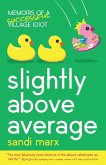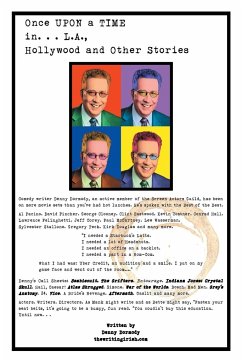"If I feel a bit blue, this is the book I take off the shelf. I absorb love of life, indestructible cheeriness, optimism, good mood from it. It does good to everyone!" -István J. Bedö/// My First Two Hundred Years is the autobiography of the Hungarian humorist and writer Pál Királyhegyi (1900-1981). It was first published in Hungary in 1979, and re- published in 2015. /// When asked why he entitled his memoir My First Two Hundred Years, Királyhegyi replied, "If it's true that war years count twice, when I say I that am two hundred, I am actually pretending to be younger than my age, since I had as bosses Franz Joseph I, Horthy, Szálasi, and even Hitler, because I worked in Auschwitz, as a simple deportee, and it is common knowledge that time there passed quite slowly, as long as one was still alive, anyway."/// In the early years of the twentieth century, Királyhegyi, a young Hungarian, stowed away on a ship bound for America. He by turns worked as a busboy, elevator operator, and banker until he boarded a train for Hollywood. There, he realized his American dream and wrote films, hobnobbing with the likes of Charlie Chaplin. But while at the height of his success, the restless Királyhegyi, known in America as Paul King, decided to return to Europe. As a Jew, the writer was "just in time" to be deported to a string of concentration camps in World War II Germany. Ultimately, Királyhegyi was liberated by the US Armed Forces and returned to Hungary to withstand the Soviet occupation and flourish in Budapest as a playwright and novelist.
Certainly no other writer has experienced the golden era of Hollywood, the ghastliness of the Holocaust, and the absurdity of Communism first-hand, and chronicled them with such a breezy wit uncorrupted by cynicism or bitterness. Heart-rending and inspirational, a rare life-story that is also a page-turner, it's the type of book young and old will be able to enjoy and learn from. This volume stands alone in Holocaust literature due to Királyhegyi's voice, which, while unflinching, is that of a natural born humorist./// We read My First Two Hundred Years again and again. His stories reflect a way of thinking most important to us all. Love of life. The ability to deal with life. Self-irony, which often helps in life.
Hinweis: Dieser Artikel kann nur an eine deutsche Lieferadresse ausgeliefert werden.
Hinweis: Dieser Artikel kann nur an eine deutsche Lieferadresse ausgeliefert werden.








